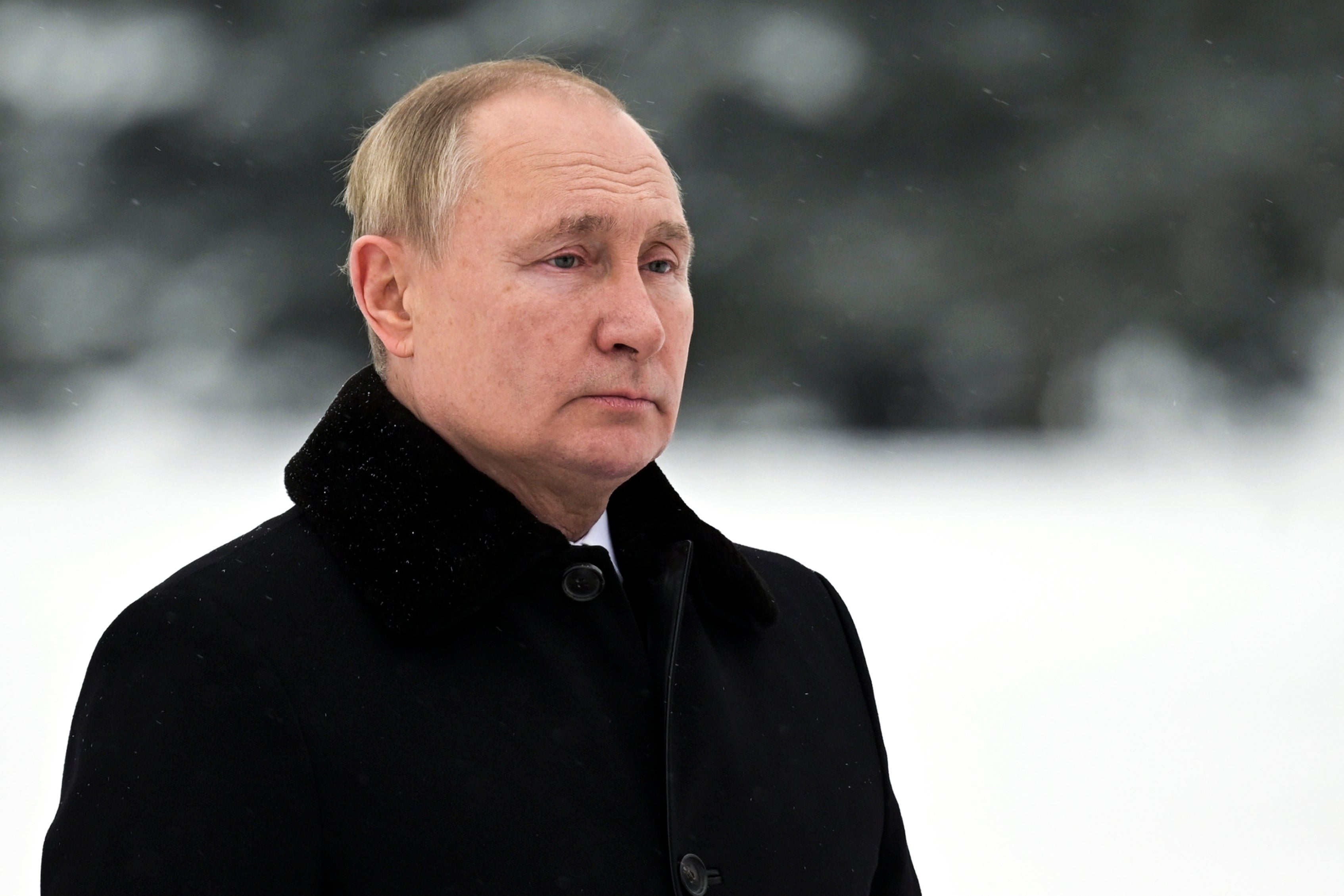EXPLAINER: Why US sanctions may target individual Russians
The White House and U

The White House and U.S. officials have threatened Russia with financial sanctions carrying “severe consequences” if it invades Ukraine but so far plenty of people have been prime targets for Western pain.
Experts say it’s unlikely the U.S. and its allies would agree to something as sweeping as a complete ban on trade with Russia or an embargo. Rather, industries and individuals probably will continue to bear the brunt of sanctions as the crisis deepens.
The Kremlin has shrugged off the sanctions against Russian officials and business leaders imposed by the U.S. and its allies. Spokesman Dmitry Peskov said this past week that members of Congress seem to fail to notice that Russian law bans officials from having any foreign assets.
The U.S. maintains that those targeted lose substantial revenue and asset value from financial penalties that could curb, for instance, an oligarch's shopping sprees and investments.
Geopolitics, European dependence on Russian natural gas and the sheer size of Russia are some of the reasons keeping the U.S. from subjecting Moscow to a more comprehensive embargo similar to what is seen in Cuba, North Korea and Iran.
A look at how and why the West might opt to target sanctions at specific people or industries in Russia rather than going bigger:
WHY GO AFTER INDIVIDUALS RATHER THAN ORGANIZATIONS?
Sometimes the more narrow jab is meant to avoid inflicting unintended pain on ordinary people or causing action that will boomerang back on Western interests.
A recent Congressional Research Service report said the U.S. and European Union aim to impose sanctions “in a way that could get Russia to change its behavior while minimizing collateral damage to the Russian people and to the economic interests of the countries imposing sanctions.”
Germany’s leaders have promised that the future of the new Nord Stream 2 pipeline would be “on the table” if Russia moves against Ukraine. The pipeline was built to move Russia’s natural gas directly to Germany, bypassing Ukraine. Blocking it would hit Russia’s gas exports in a crucial market.
WHO ARE THE PEOPLE WHO GET TARGETED?
According to the CRS, several politically connected Russian billionaires and their companies are targets for sanctions. The Treasury Department's foreign assets enforcement arm has cited at least 445 people and businesses as “specially designated nationals and blocked persons." These are largely related to the destabilization of Ukraine, misappropriation of assets and operations in Crimea, the Black Sea peninsula that Russia seized from Ukraine.
Among the targets are government officials and heads of state-owned companies, including Russia’s interior minister, the directors of foreign intelligence and the federal penitentiary service, and the chairs of both houses of parliament. The CEOs of state-owned oil and gas companies Rosneft and Gazprom, defense company Rostec and several banks could also expect sanctions.
WHAT KIND OF SANCTIONS HAS THE US IMPOSED ON RUSSIANS IN THE PAST?
Western sanctions issued when Russia invaded and annexed Crimea in 2014 included limits on trade, the blocking of assets under American jurisdiction and limits on access to the U.S. financial system, which are maintained to this day on at least 735 individuals, entities and vessels, according to the Office of Foreign Assets Control.
In the past year, the U.S. has layered on additional sanctions.
This month, the U.S. Treasury sanctioned four people — two of them are members of the Ukrainian parliament — alleged to be engaged in Russian government-directed activities meant to destabilize Ukraine. Last April, 16 individuals and entities were sanctioned for what Treasury Secretary Janet Yellen called “the start of a new U.S. campaign against Russian malign behavior.”
White House press secretary Jen Psaki recently warned that Russian President Vladimir Putin and his top officials could incur personal penalties “far beyond what was done in 2014” because of Crimea.
HOW EFFECTIVE ARE SANCTIONS ON INDIVIDUALS?
Personal sanctions are not nearly as effective as those on industries, which the administration is also considering. But they can inflict psychological pain and make targets international pariahs. For instance, some Republicans in Congress want the U.S. to consider sanctioning Alina Kabaeva, an Olympic gold medalist in rhythmic gymnastics reported to be Putin’s girlfriend.
Assets owned by Putin himself are difficult to target.
“His wealth is hidden all over the world and tracking that stuff is not easy. But it will make his life more difficult,” said Scheherazade Rehman, professor of international business and international affairs at George Washington University.
Asked this past week about Biden keeping the door open for personal sanctions against Putin if Russia invades Ukraine, Peskov warned that such a move would be “politically destructive” for Russia's ties with the U.S.
U.S. sanctions on Russia can have broad economic effects if they are applied to economically significant targets — and some programs do that by targeting both particular people and businesses as well as prohibiting certain types of transactions.
WHAT OTHER KINDS OF PENALTIES ARE IN THE US TOOLKIT?
Several federal agencies can also play a part in enforcing sanctions or limiting commercial activity. The State Department can restrict visas and foreign aid, and the Commerce Department can restrict licenses for commercial exports. The Defense Department can restrict arms sales and the Justice Department can prosecute those who violate export laws. Additionally, the Department of Homeland Security and FBI can review visas issued for travel to the United States.
___
Associated Press writers Vladimir Isachenkov in Moscow and Aamer Madhani in Washington contributed to this report.
Bookmark popover
Removed from bookmarks